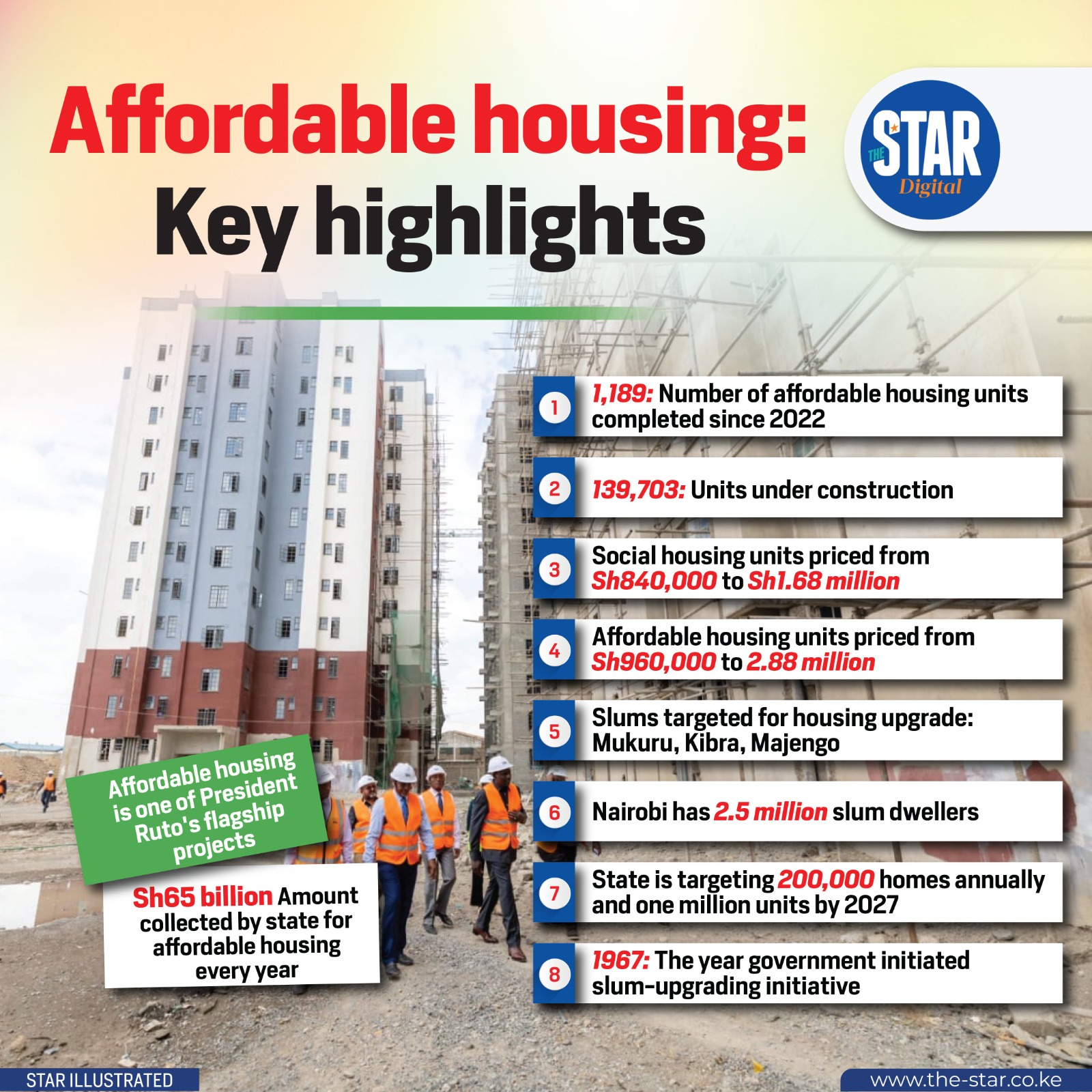The Kenyan government's commitment to affordable housing remains a cornerstone of its national development agenda, forming a key pillar of the "Big Four Agenda." This ambitious initiative aims to bridge the significant housing deficit by delivering hundreds of thousands of affordable units, thus transforming the landscape of **real estate in Kenya**. For both developers and prospective homeowners, this presents a unique set of opportunities and challenges. At **Vineyard Properties**, we track these developments closely to advise our clients effectively.
1. The Rationale Behind the Affordable Housing Program
Kenya faces a substantial housing deficit, estimated at over 2 million units, with an annual demand of approximately 200,000 units against a supply of only 50,000. A large portion of the urban population resides in informal settlements, lacking access to decent, safe, and affordable housing. The affordable housing program seeks to address this gap by making homeownership a reality for low- and middle-income Kenyans, fostering social equity, stimulating economic growth through construction, and creating jobs. This emphasis has profound implications for the overall direction of **real estate in Kenya**.
2. Key Features and Mechanisms of the Program
The affordable housing initiative employs several mechanisms to achieve its goals:
a. Public-Private Partnerships (PPPs):
The government actively seeks collaborations with private developers to leverage their expertise, efficiency, and capital. This includes providing land, streamlining approval processes, and offering various incentives to make affordable housing projects viable. This collaborative approach is essential for scaling up the delivery of housing units across **real estate in Kenya**.
b. Tax Incentives and Financial Relief:
To reduce development costs and make units more affordable, the government has introduced incentives such as VAT exemptions on construction materials for affordable housing projects and corporate tax holidays for developers meeting specific thresholds. Such financial stimuli are crucial for attracting investment into this critical sector of **real estate in Kenya**.
c. The Housing Fund (Boma Yangu):
This contributory fund, financed by both employers and employees, aims to provide a sustainable source of financing for affordable mortgages. The fund also facilitates off-taker agreements, ensuring a ready market for the constructed units. This mechanism is designed to address the critical challenge of access to affordable financing for aspiring homeowners in **real estate in Kenya**.
d. Land Provision:
County governments and state corporations are encouraged to make available public land for affordable housing projects, reducing the significant land acquisition costs for developers.
3. Opportunities for Developers
For private developers, the affordable housing agenda opens up a massive, underserved market. The government's support, through land, incentives, and off-take agreements, de-risks these projects to a considerable extent. This creates an opportunity for developers to build at scale, utilizing innovative construction technologies and materials to maintain affordability while ensuring quality. **Vineyard Properties** sees this as a growth area for developers willing to adapt to the specific requirements of this market segment within **real estate in Kenya**.
4. Benefits for Homeowners
The primary beneficiaries are Kenyans who have historically been priced out of the conventional housing market. The program aims to provide them with decent, secure, and affordable homes, enhancing their quality of life and contributing to wealth creation through asset ownership. The structured payment plans and lower mortgage rates (through the Housing Fund) make homeownership more accessible and sustainable for a wider demographic. This is a transformative moment for many in **real estate in Kenya**.
5. Challenges and Considerations
Despite the noble intentions, the program faces challenges. Bureaucracy and delays in project approvals can still be a hurdle. Land acquisition, despite efforts, can remain complex. Furthermore, ensuring the quality and sustainability of the units while keeping costs low requires careful planning and oversight. The long-term viability of the Housing Fund and its ability to attract sufficient contributions also remains a key factor. Addressing these challenges is vital for the sustained success of affordable **real estate in Kenya**.
Conclusion: A Path Towards Inclusive Real Estate Growth
Kenya's affordable housing agenda represents a concerted effort to create a more inclusive and equitable **real estate in Kenya** sector. While not without its complexities, the program signifies a significant opportunity for developers to contribute to national development while securing substantial business. For ordinary Kenyans, it offers a tangible path to achieving the dream of homeownership. At **Vineyard Properties**, we are committed to facilitating this vision. Whether you are a developer seeking to participate in these transformative projects or an individual looking for your first affordable home, our expert team is ready to guide you through every step. Partner with us to explore the vast potential within **real estate in Kenya** and turn aspirations into reality.




